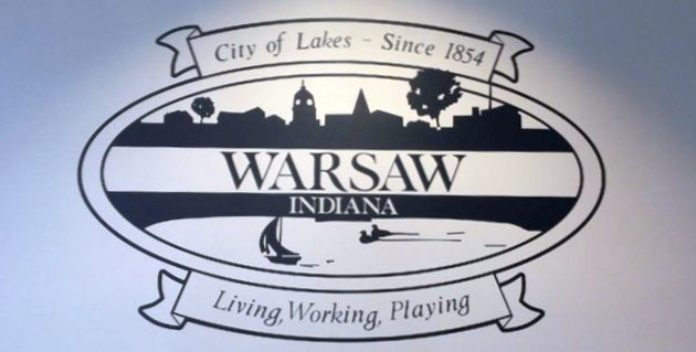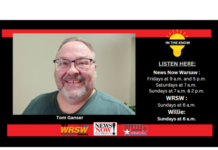Warsaw City Council on Monday received a rough idea of how much wastewater bills will rise next year.
And it appears to be less than expected.
A year ago, Mayor Joe Thallemer outlined a plan that would push up sewer bills for residential customers by as much as 38 percent for two bond issues needed to pay for $40 million in upgrades to the wastewater treatment plant and much of the underground infrastructure.
But after altering calculations on how much flow customers actually use and the implementation of a new cost of service study, the overall hike could be closer to 24 percent for many residential customers, according to information presented to the council by Umbaugh, a South Bend firm the city relies on for much of its municipal financing.
The city is now making estimates based on 4,000 gallons of water used instead of 4,800 gallons. That coincides with last year’s switch from charging flat rates on residential customers instead of ones based on flow.
Under a new scenario presented by Umbaugh, most residential customers, including those in single dwellings and duplexes, would see an overall 24 percent hike rather than last year’s estimate of 38 percent if they use 4,000 gallons per month.
In many cases, the city realized customers were using much less water.
In fact, a scenario presented by Umbaugh for customers in apartment complexes – if they don’t use a lot of water – could see a decrease in their overall bills of 11 percent. That figure was based on an apartment complex with 145 units and significantly less flow.
If residential customers use 4,000 gallons, their bills will rise 24 percent, under the current plan.
“If they use less, it will be less. If they use more, it will be more,” Thallemer said.
Thallemer called the update and proposals a “truing up” of the budgetary needs for the sewer department.
He urged the council to review the plan and look for any needed changes.
The council took no action on Monday.
Umbaugh representative Jeff Rowe told the council that a cost of service approach being implemented helps identify service characteristics among its customers and “is critical to establishing equitable rates and charges.”
The time for such a change is right, according to Umbaugh, because of many changes happening with the wastewater system, including consolidation, customer growth, expansion plans, the switch from a flat rate to a metered rate for residential and the elimination of an administration charge.
The rate hike would also be passed on two towns that rely on Warsaw to treat sewage.
The report suggests charges to serve Winona Lake would rise about 8 percent, while the town of Leesburg would see an increase of about 7 percent.
The report also showed how the city’s biggest industrial user, Zimmer Biomet, would be affected, noting the company’s monthly bill would rise about 16 percent
The latest cost estimate for the upcoming expansion construction of the treatment plant is $30.5 million, according to Umbaugh.
Rowe outlined a timeline to implement a bond ordinance to finance treatment plant expansion.
The council could conduct the first reading for the bond ordinance on Oct. 15 and adopt it by mid-November.
They hope to receive construction bids on the project by early October.





